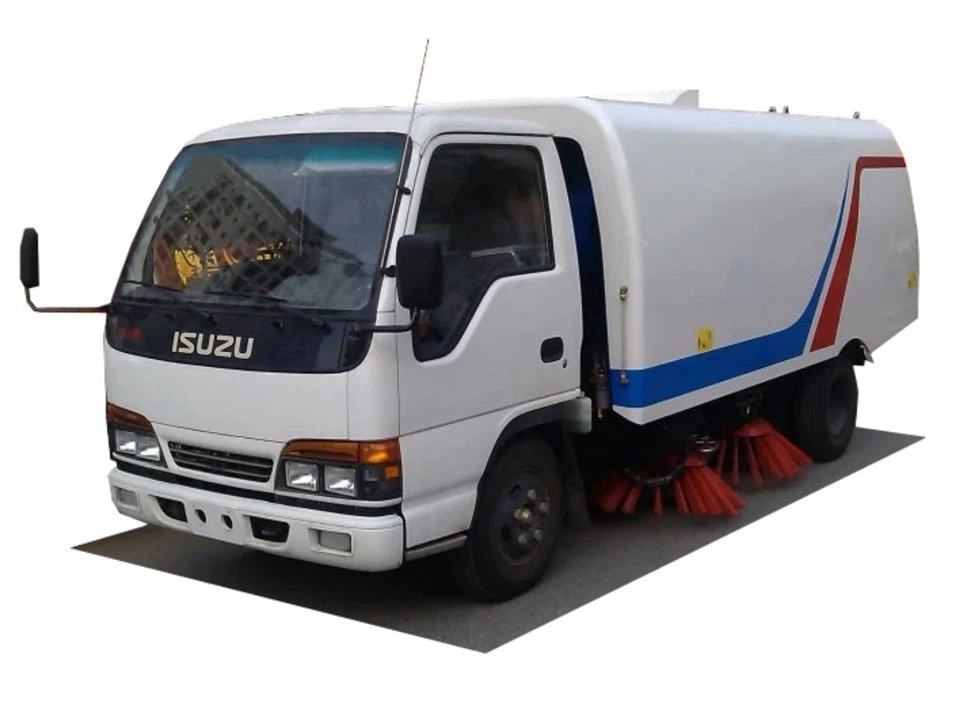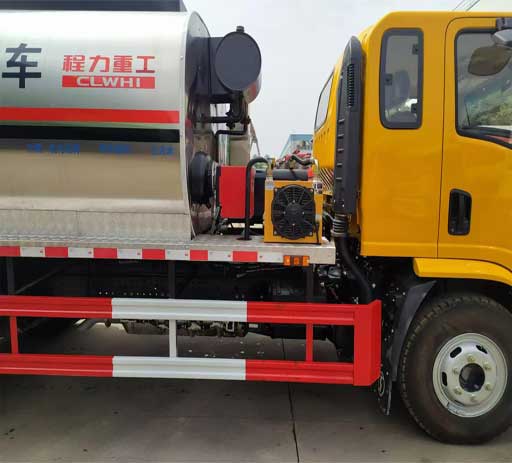Septic Vacuum Truck for Sale: A Comprehensive Guide

If you’re in the market for a septic vacuum truck, understanding the features, types, and factors influencing purchase decisions is crucial. This comprehensive guide will provide insights into septic vacuum trucks, their uses, benefits, and tips for buying your perfect truck. We’ll dive deep into what makes a great septic vacuum truck and the essential considerations to keep in mind when selecting one from the market.
What is a Septic Vacuum Truck?
A septic vacuum truck is a specialized vehicle used to transport and dispose of waste from septic tanks, holding tanks, and grease traps. These trucks are equipped with a powerful vacuum system that effectively sucks up liquid waste and sludgy solids, transporting them to a treatment facility or disposal site.
Why Use a Septic Vacuum Truck?
Septic vacuum trucks are vital for maintaining sanitary conditions, especially in areas without a centralized sewage system. Here are some reasons why these trucks are essential:
1. Efficient Waste Removal
The powerful vacuum system allows for the rapid collection of waste material, reducing the time and labor involved in manual cleaning.
2. Environmental Protection
Proper disposal of septic waste is critical to prevent environmental contamination and to adhere to local regulations.
3. Versatility

These trucks can handle various types of waste, making them suitable for a range of industries, including commercial, residential, and industrial applications.
4. Regular Maintenance
Using a septic vacuum truck ensures that sewage systems are regularly maintained, prolonging the life of septic tanks and preventing costly repairs.
Key Features of a Septic Vacuum Truck
When searching for a septic vacuum truck for sale, consider the following features:
1. Storage Capacity
The tank size determines how much waste can be transported in one trip. Common capacities range from 500 to 3000 gallons.
2. Pumping System
The type and efficiency of the vacuum pump are crucial in achieving effective waste collection. Consider models with a high GPM (gallons per minute) rating for faster service.
3. Tank Construction
Tanks can be made from various materials, including steel and aluminum. Steel is more durable but heavier, while aluminum is lighter and resistant to corrosion.
4. Hose Length and Type
Check the length and type of suction hose, as this affects how far the truck can operate from the tank and the ease of maneuverability.
Types of Septic Vacuum Trucks
There are several types of septic vacuum trucks to consider:
1. Standard Vacuum Trucks
These are basic models designed for routine septic tank cleaning and waste transport.
2. Specialty Vacuum Trucks
These trucks are designed for specific applications, such as handling hazardous waste or cleaning drain fields.
3. Combination Trucks
These versatile trucks combine vacuum capabilities with jetting systems for more comprehensive waste management tasks.
Buying a Septic Vacuum Truck: Practical Tips
1. Assess Your Needs
Determine the type of waste you’ll be handling and the volume you’ll need to transport. This assessment will guide your selection process.
2. Set a Budget
Prices for septic vacuum trucks vary widely based on size, features, and manufacturer. Set a realistic budget before shopping.
3. Research Manufacturers
Look for reputable manufacturers known for producing reliable septic vacuum trucks. Read reviews and ask for recommendations from industry peers.
4. Consider Used vs. New
Decide if you want to buy a new truck or a used one. Used trucks can be more affordable but may require more maintenance.
5. Schedule a Test Drive
Always test drive the truck to assess handling, comfort, and functionality of the equipment.
6. Examine Warranty Options
Inquire about warranty coverage to protect your investment. Good manufacturers should offer comprehensive warranties on parts and service.
Common Maintenance Tips for Septic Vacuum Trucks
To ensure your septic vacuum truck operates efficiently, follow these maintenance tips:

1. Regular Inspections
Conduct regular inspections of the truck’s tank, pump, and hoses to identify potential issues before they become serious.
2. Proper Cleaning
After each use, clean the tank and hoses to prevent clogs and odor build-up.
3. Fluid Levels
Monitor fluid levels and keep the vehicle well-lubricated to ensure smooth operation.
4. Service Schedule
Follow the manufacturer’s recommended service schedule to keep the truck in top condition.
Cost Considerations for Septic Vacuum Trucks
Understanding the costs associated with purchasing a septic vacuum truck is crucial:
| Type of Truck | Price Range | Typical Capacity |
|---|---|---|
| Standard Vacuum Truck | $30,000 – $150,000 | 500 – 3000 gallons |
| Specialty Vacuum Truck | $100,000 – $250,000 | 1000 – 3000 gallons |
| Combination Truck | $150,000 – $300,000 | 1500 – 5000 gallons |
Finding Septic Vacuum Trucks for Sale
When searching for septic vacuum trucks for sale, consider the following sources:
1. Online Marketplaces
Websites like eBay, Craigslist, and specialized truck sale sites often have listings for new and used septic vacuum trucks.
2. Dealerships
Local and national dealerships specializing in commercial vehicles can offer both new and used options, along with financing plans.
3. Auctions
Participating in government or commercial vehicle auctions can be an effective way to find good deals on septic vacuum trucks.
4. Industry Trade Shows
Attending industry trade shows can provide insight into the latest models and technologies available.
FAQ Section
1. How often should septic tanks be pumped?

Typically, septic tanks should be pumped every 3 to 5 years, but this can vary based on usage and tank size.
2. What is the average lifespan of a septic vacuum truck?
A well-maintained septic vacuum truck can last anywhere from 10 to 15 years or more, depending on usage and care.
3. Can I get financing for a septic vacuum truck?
Yes, many dealerships and banks offer financing options for purchasing septic vacuum trucks, including loans and leases.
4. Are used septic vacuum trucks reliable?
Used septic vacuum trucks can be reliable if they have been well-maintained and inspected prior to purchase. It is crucial to do your research.
5. What is the difference between a vacuum truck and a combination truck?
A vacuum truck specializes in liquid waste removal, while a combination truck can both vacuum and jet clean, making it more versatile.
6. Do I need a special license to operate a septic vacuum truck?
In many regions, a commercial driver’s license (CDL) is required to operate a septic vacuum truck. Always check local regulations.
